
Court Rules Laws on Wetlands Apply to Family’s Farm
Sunday, September 03, 2006
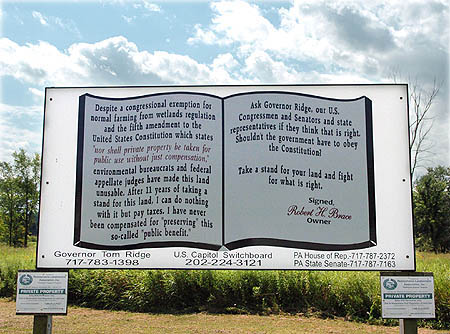
Robin Rombach, Post-Gazette
Robert Brace posted a sign on his acreage in Waterford, Erie County that has been designated wetlands. He is not allowed to farm the 30 acres because of wetland-protection laws.
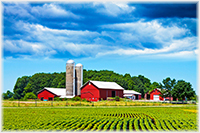
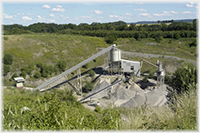
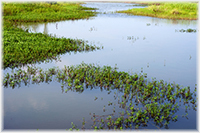


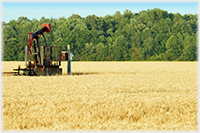
By Don Hopey, Pittsburgh Post-Gazette WATERFORD, Pa. --
Robert Brace rolls into his rough-hewn wood-paneled office, thrusts out a meaty hand and, even before he sits down, is talking fast from beneath his mesh Pennsylvania Landowners Association ball cap.
He's driven here to sandwich an interview between two meetings 20 miles away in Erie, and doesn't have much time, maybe an hour, to talk. It's clear, though, that the robust, 68-year-old former cabbage farmer turned nationally known property rights advocate wouldn't downshift even if he could.
That's especially true when the subject is the Aug. 4 federal court decision that denied his claim that using environmental regulations to prevent him from draining, filling and farming a wetlands amounts to a taking, for which he should be paid.
"I don't like thieves and I don't like thievery, and that's what the government is doing," said Mr. Brace, who has framed, autographed photos of President Bush and Vice President Dick Cheney on his office bookshelf. "What right does the government have to control my land? If I can't use it, we shouldn't be debating if I am entitled to compensation."
But where Mr. Brace sees regulators gone wild, the federal judge in the case and mainstream legal experts see court decisions in step with more than 100 years of precedents that allow government to regulate land use for purposes of protecting other property owners, and benefiting communities, public safety and the environment.
Still, Mr. Brace is revved up, in part because he's angry about the decision by the U.S. Court of Federal Claims in Washington, D.C., and because he senses a watershed moment for a property rights movement in Pennsylvania that, in recent years, has gone as dormant as a fallow farm field.
"People are tired. They still feel the same way, but they can't spend every hour of the day volunteering for these things," Mr. Brace said, noting that many of the activities of the Pennsylvania Landowners Association, the property rights organization he founded in 1987, have been shifted to the Defenders of Property Rights, a Washington, D.C.-based lobbying and legal organization.
"I've worked for 20 years on this, trying to educate the public and Congress about righting a wrong, but how long can I do that?" he said. "I'm hoping I see a turnaround. I believe there's a chance. But if we don't, I don't think we as a nation stand a snowball's chance."
Family Farm
His case, Brace vs. The United States, turns on a soggy, 30-acre corner of the Brace family farm near the headwaters of Elk Creek, which, closer to Lake Erie, is a popular steelhead trout fishing creek. The bottom land had been in Mr. Brace's family for 40 years when his father, a cattle and dairy farmer, retired in 1975 and sold the 134-acre parcel to Mr. Brace.
He began to clear the land, which had become overgrown, and started to repair a drainage system and install new ditches and drains with the idea of expanding his cabbage farming operation.
From 1977 to 1986, he did not use the land for pasture or crops. During that time, he installed more than five miles of underground drainage pipe on the property with the knowledge and aid of the U.S. Department of Agriculture.
In 1987, two State Game Commission officers, on the farm to trap beavers that had dammed the creek, questioned whether the drainage work was allowed under the 1972 Clean Water Act. Later that year, Mr. Brace received letters from the U.S. Environmental Protection Agency, the Army Corps of Engineers and the U.S. Fish and Wildlife Service, informing him he had drained regulated wetlands, caused sedimentation in the creek and damaged steelhead trout spawning waters. They ordered him to restore the wetlands or face fines of up to $25,000 a day.
But Mr. Brace decided to fight rather than fill the ditches. He made a federal case out of it, arguing he was exempt from the federal rules against draining wetlands under Section 404 of the Clean Water Act because of his farming operations.
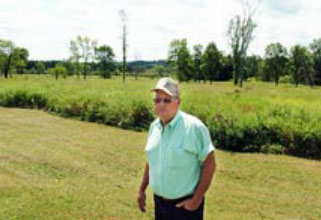
Robert Brace stands on 30 acres of his property in Waterford, Erie County, that is under regulations for wetlands, preventing him from farming it.
In 1993, the federal District Court in Erie decided in his favor, but the ruling was overturned on appeal in 1994. A three-judge panel of the federal 3rd Circuit Court in Philadelphia said that, while other parts of the farm did qualify for the exemption, the wetland site didn't because it had not previously been used for farming.
As a result of that ruling, Mr. Brace signed a consent order in which he avoided a $125,000 fine by agreeing to pay a $10,000 penalty, disable the drainage network, restore the site and refrain from dumping fill in the wetlands.
In 1998, Mr. Brace filed the case recently decided in the federal Court of Claims, alleging that the federal regulators' actions and the consent agreement resulted in the taking of his property without just compensation, a violation of the Fifth Amendment.
Mr. Brace said he was surprised by the court's ruling that "none of plaintiff's taking claims [are] well-taken."
According to the court, the requirement to maintain the wetlands diminished Mr. Brace's property value 14 percent. Most successful regulatory takings claims require that the value of the property in question be diminished by 90 percent or more.
Mr. Brace said he might appeal -- he has another 30 days to decide -- but the chances of a higher court taking up the appeal are slim, according to Glenn Sugameli, a lawyer with Earth Justice, an environmental group.
"It's an unexceptional result. It's not a groundbreaking decision and it applies well-settled existing law," Mr. Sugameli said. "He can always appeal, but he has a pretty weak claim economically, and it would require a creative interpretation and ignoring binding precedent to decide this differently."
Mr. Sugameli, who, in the 1990s, worked for the National Wildlife Federation and worked with other environmental groups to oppose the kind of expansive definition of a governmental taking that Mr. Brace supports, said the property rights movement was alive, but not kicking as much as it once did.
"There's a couple of ballot initiatives in some Western states, but I don't think there's the same groundswell for changing the definition of property rights to require the government to write a blank check to property owners just so they won't hurt their neighbors," Mr. Sugameli said.
He said property rights advocates had tried to piggyback on public anger over the unrelated U.S. Supreme Court ruling last year in the Kilo case, where the court ruled that local government could condemn private property for the purpose of economic development, but there is little common ground.
"That's different than the zoning and environmental laws those people oppose," Sugameli said, "and which limit the ability of one property owner to use his property in a way that it harms others, and others' properties, the community and the environment."
Down the narrow country lane from the barn where Mr. Brace milked his father's cows as a boy lies the gently rolling, still soggy swath of farmland that defines his politics and the state organization he founded and still leads.
Mr. Brace has stopped here on his way back to his meeting in Erie to point out the wetlands and adjacent farmland, now overgrown with brush and punctuated by the bone-gray trunks and bare branches of dead and dying elms. Water backed up behind beaver dams fills the ditches where cattails and lily pads grow.
He said the water had completely ruined this part of the farm, not just the 30 acres that are wetlands, but all 65 acres on the south corner, where Lane and Greenlee roads intersect. He owns a little more than 2,000 acres and has planted feed corn on 1,700 of them.
"I'm more of an environmentalist than 99 percent of the people yakking, but with a very strong property rights belief," said Mr. Brace, whose politics are a rural mix of traditional moral conservatism and libertarian let-me-aloneism. He wants less government, lower taxes and fewer regulations. He believes global warming is "just another theory without scientific evidence that's being used to manipulate people's minds."
He was named Republican of the Year by the national Republican Party last year, but said he was disenchanted with politicians who say one thing and don't do anything.
"I haven't changed, but 20 years ago, I thought the system still worked. Now I think it's broken," he said. "We've let the regulators control us to no end and the lawmakers are not paying attention to us.
"If you want to call me a radical for telling the truth, have at it, because if you were on my end of the stick, you'd be saying it, too. I still plan on winning, regardless of the court decisions. The American people will lose if I don't straighten this out."
First published on September 3, 2006 at 12:00 am
Don Hopey can be reached at dhopey@post-gazette.com or 412-263-1983.
Visit the "Articles and Documents" page for more information.
BRACE FARMLAND TODAY
As of May, 2023, the photos below depict the state of Bob’s farmland after being unable to maintain his farm field ditches and tile lines due to government orders. Additionally, beaver have reintroduced themselves into the area and their dams have not been allowed to be removed.
This is the result of government control over private property.
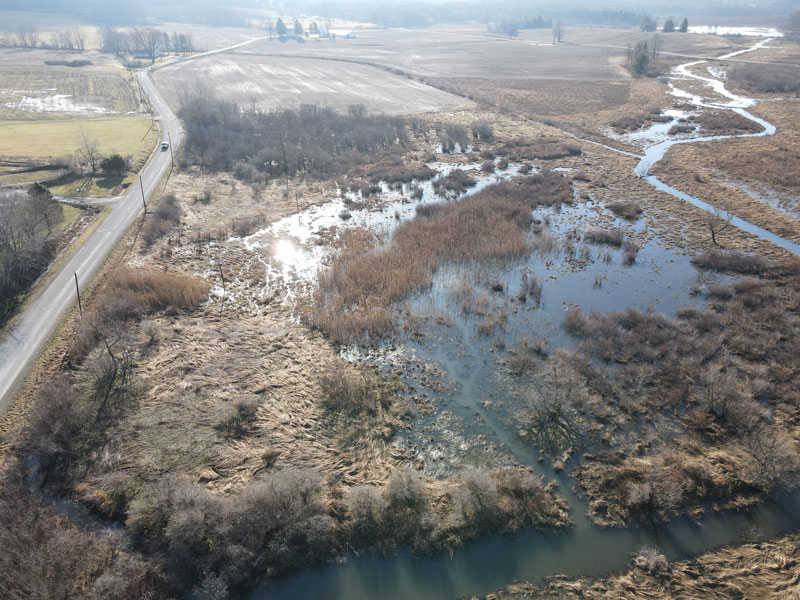
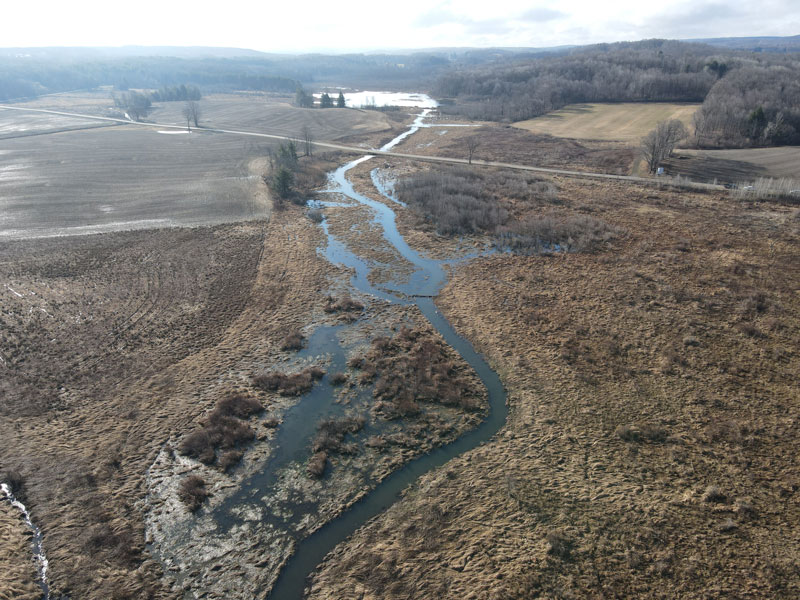
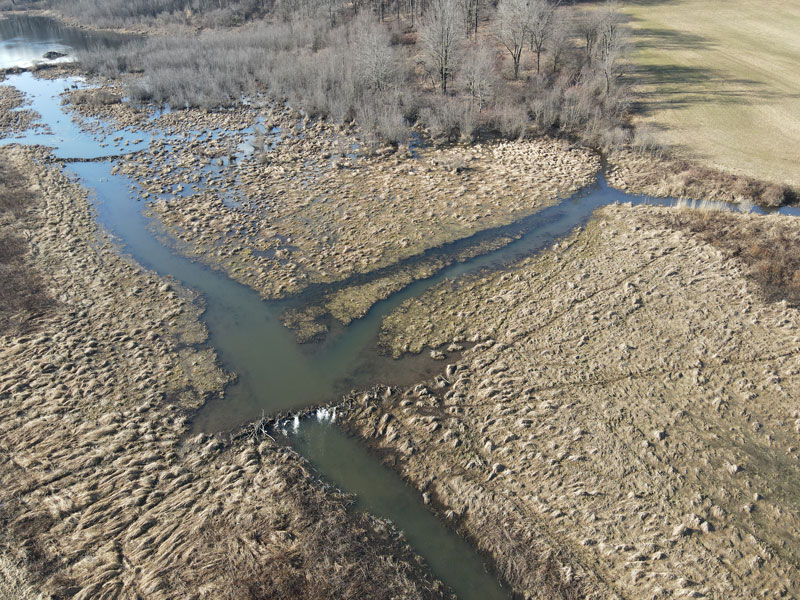
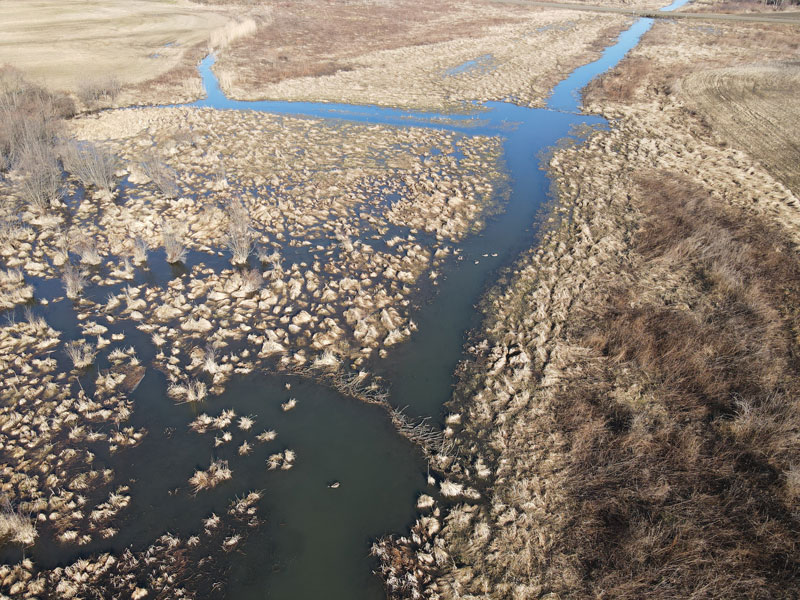
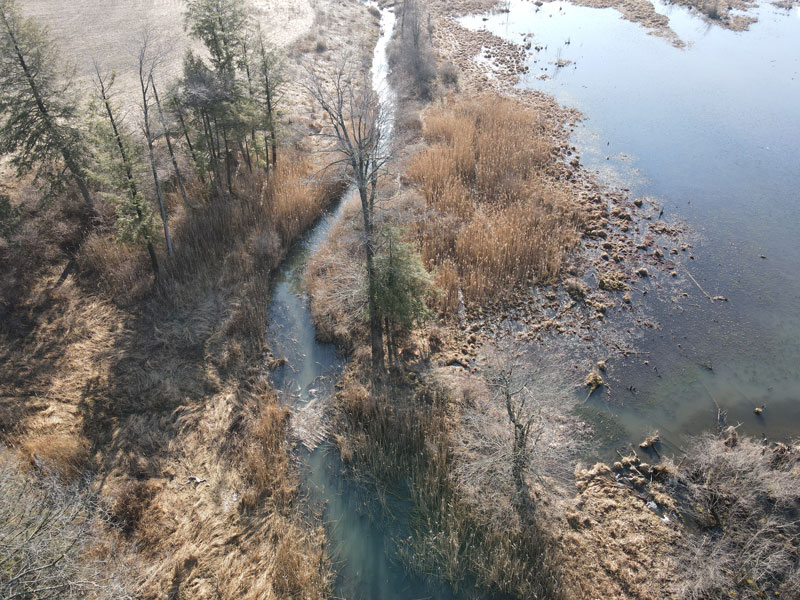
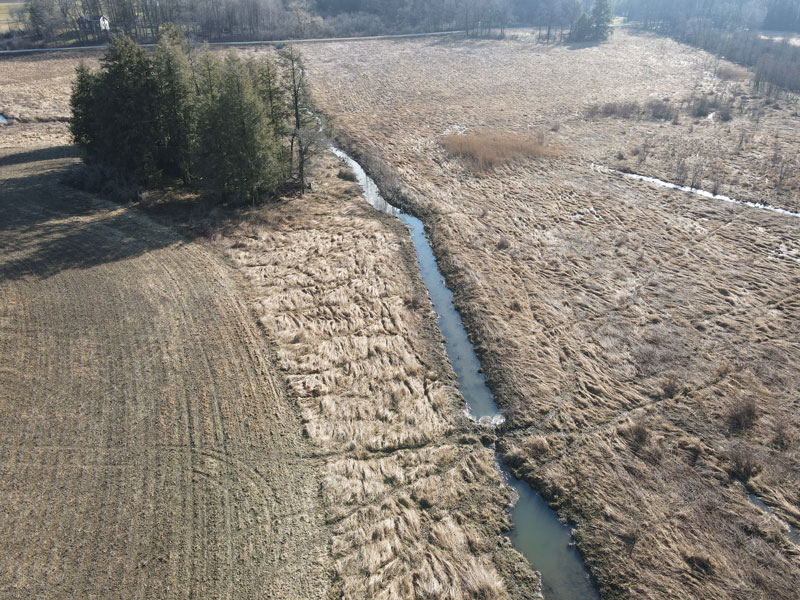
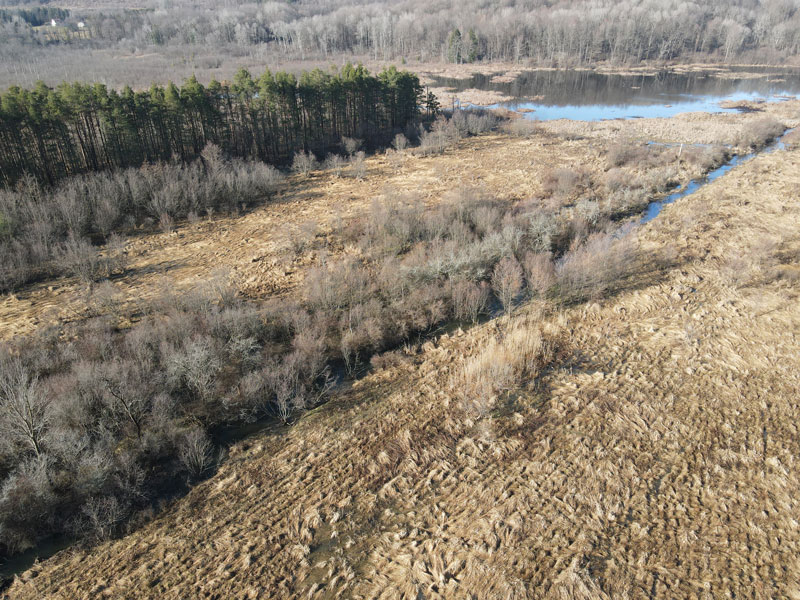
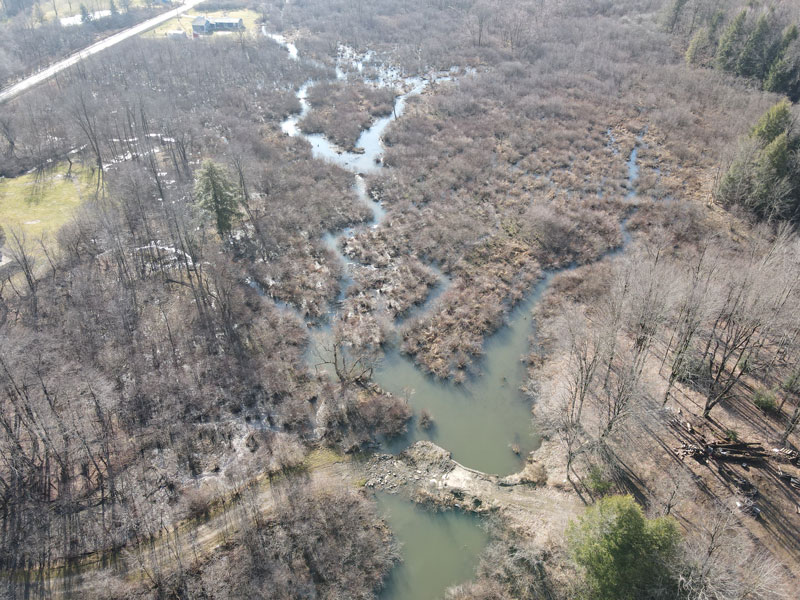
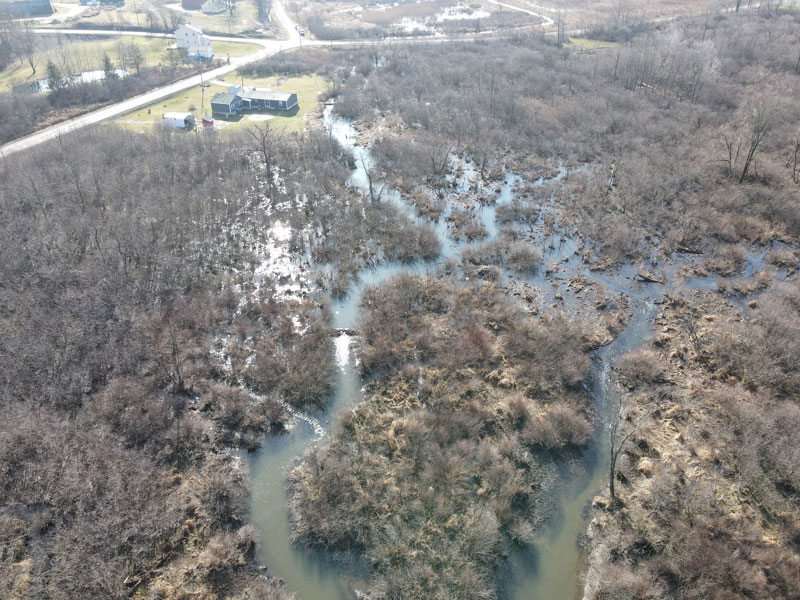
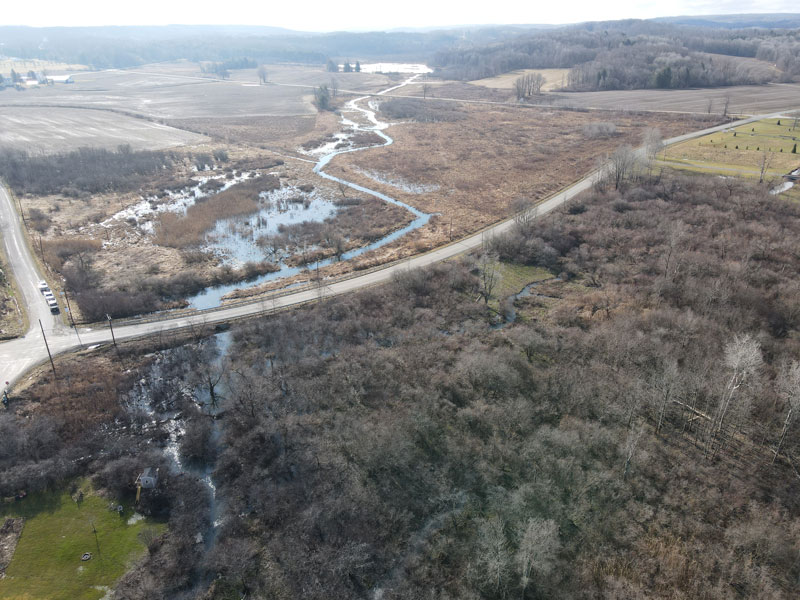
Copyright © 1997-2017, Pennsylvania Landowners' Association. All rights reserved.
